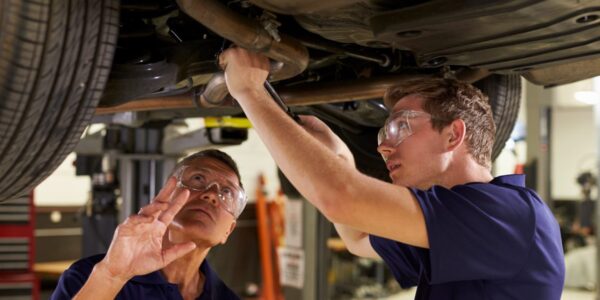Autocare panel talks recruiting and retaining technicians in 2023
- PostedPublished 25 July 2023
As we continue to negotiate the aftershocks of 2020’s COVID-19 outbreak, the automotive repair and service industry’s enduring shortage of skilled technicians remains a key disruptor – especially as around a third of the 1.5 million people who left Australia during the pandemic have not returned.
During a panel session entitled The Race to Find and Keep Top Talent in Your Workshop at the recent Autocare convention in Brisbane, Fifth Quadrant strategy and insights director Ben Selwyn told attendees that Australia is “short one technician for every single workshop in the country”.
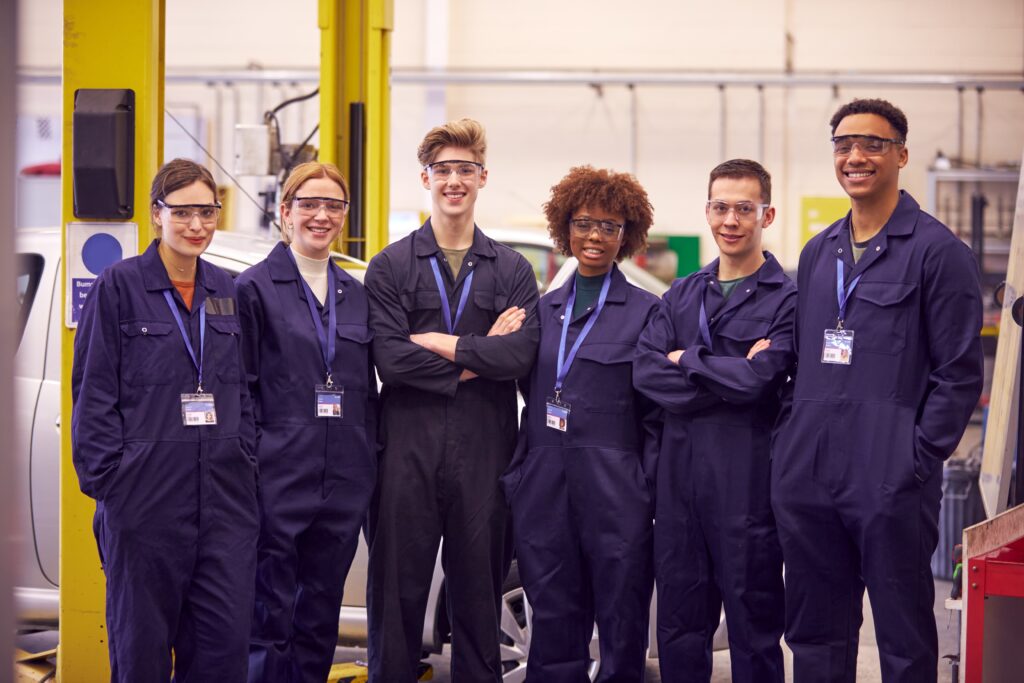
Mr Selwyn also explained that the automotive repair and service sector also lacks enough apprentices to meet future demand, with an estimated shortage of 12,000 to 13,000 apprentices compounded by low apprentice completion rates.
While recruiting overseas technicians can help supplement local hiring in the short term, AutoRecruiter and Konnecting Migration managing director Fred Molloy warned that international recruitment should ideally supplement an overall hiring strategy as it has its risks, requires planning at least six months in advance and comes with up-front costs.
The panel, led by Australian Automotive Aftermarket Association (AAAA) government relations and advocacy director Lesley Yates, agreed that developing a talent pipeline within Australia through initiatives like apprenticeship programs, school partnerships and career promotion will be essential to solving the long-term shortage. Changing perceptions of automotive careers and attracting more entrants, particularly women and under-represented groups, will also be of critical importance.
“Many experienced technicians are approaching retirement age, while younger workers are not entering the field in sufficient numbers,” said Mr Selwyn, adding that staff turnover was another issue.
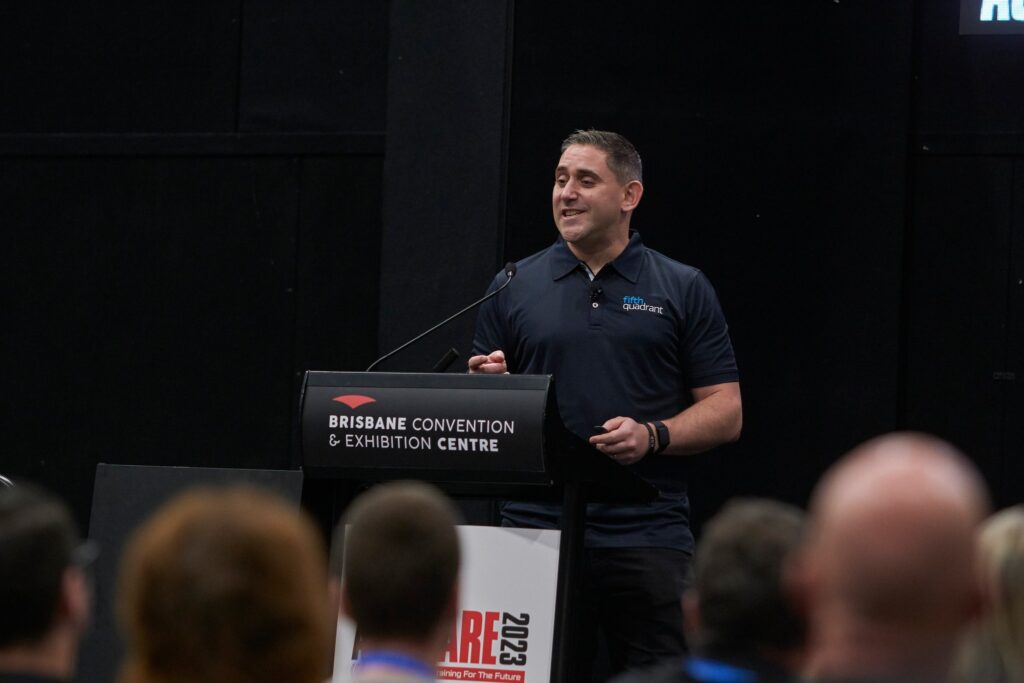
“Technicians often change jobs or leave the industry within a few years of qualifying,” he said.
Sharing her experiences as a young female automotive technician, Triple Eight Race Engineering race car mechanic Gabrielle Clift advised that workshops need to do more to engage and motivate apprentices, beyond their rate of pay.
“Retaining technicians comes down to finding what interests them and what’s motivating them,” she said.
“While pay is important, workshops should also invest in training, experiences and flexibility for technicians. If you keep me interested, you can keep me motivated.”
Echoing these comments, Mr Selwyn said a surprising finding of Fifth Quadrant’s recent research was a desire for access to wholesale prices for parts and tools, as well as out-of-hours use of workshop equipment so they can enjoy working on their personal cars.
“When it comes to the automotive technicians, it’s not just about the pay, there’s a lot of other benefits they can get within a workshop environment that can have a lot of value,” he said.
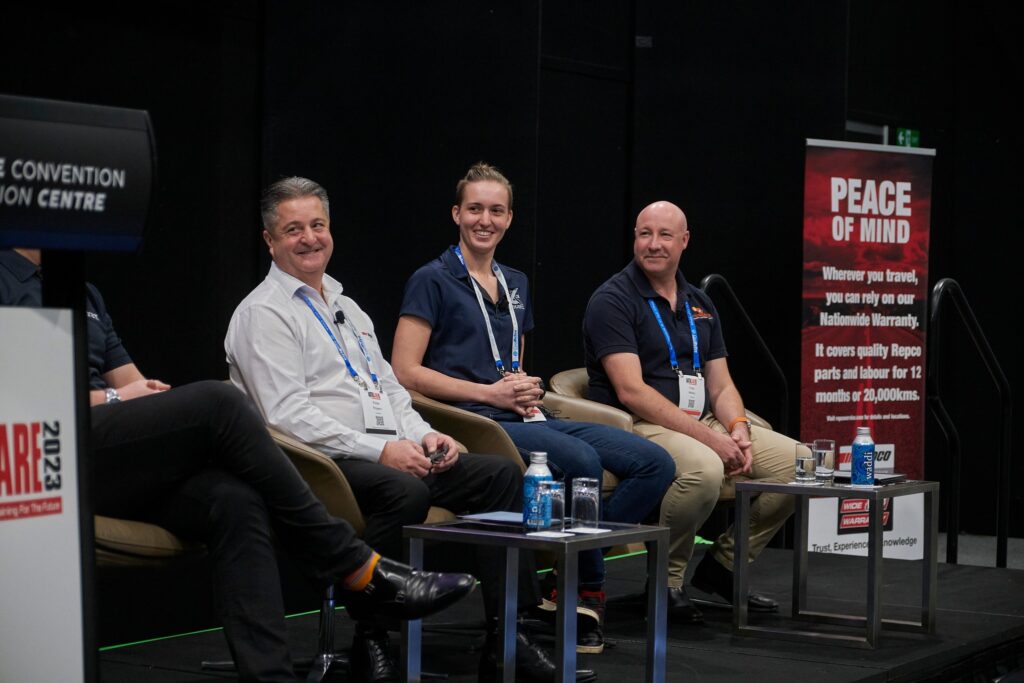
“One of the points that came through most strongly in the research was the flexibility piece … The other one that we hadn’t actually thought of but came out really strongly, was the ability to basically buy through the workshop. So, getting parts at cost, being able to use the workshop resources.”
Mr Molloy agreed, saying recent changes to the minimum wage threshold and other government policies had not reduced demand for recruitment of overseas technicians.
The technician shortage is being driven by a complex set of factors, panellists explained.
Repco Authorised Service national manager Peter Rogers agreed that pay alone is not enough, saying “flexibility, benefits and training opportunities are also valuable retention tools”.
However, he noted that accurate salary data is still “an important piece of the puzzle” for understanding and addressing the technician shortage.
In its study, Fifth Quadrant interviewed people at 150 automotive workshops and surveyed 600 apprentices, while assessing annual pay for apprentices and qualified technicians.
Fifth Quadrant found the average qualified mechanic made $69,900 a year, putting them below other popular trades like plumbers ($74,500) and electricians ($89,500), although the top five per cent were earning upwards of $100,000 and some much more than that.
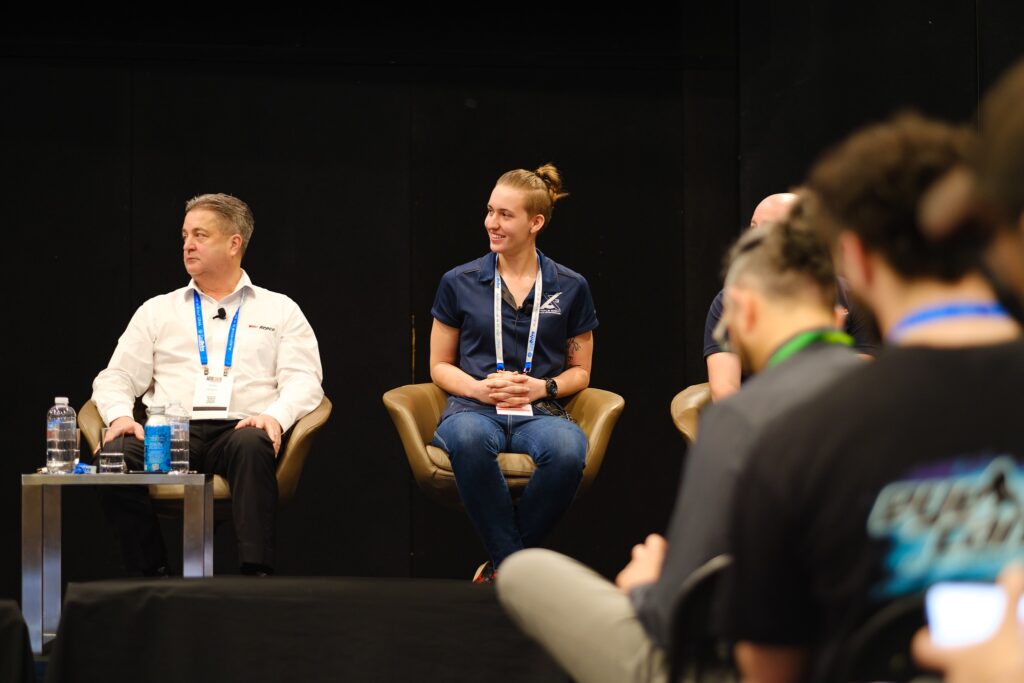
Mr Rogers said that for workshops to sustain competitive rates of pay, “it’s important that we’re able to have conversations with our customers that are meaningful and trustworthy” about charging appropriately for the type of work being done.
A contributor would be to changing the perception of automotive service and repair, with a key driver being the shift away from using the word mechanic and uniformly adopting technician as a job title.
Panellists agreed that enhancing the industry’s image could also result in more people choosing this career path.
Mr Selwyn said that one in five workshops surveyed by Fifth Quadrant said they would bring apprentices on board – if they could find them.
“They’re looking for more than one,” he said. “What we see less of and, again, it raises that question of the pipeline, is the junior qualified techs; it’s harder and harder to find them, as well as apprentices.”
Mr Rogers suggested placements and apprentice exchanges between workshops could provide desirable and useful diversity of experience for apprentices, which could help with retention.
He also suggested that technicians be rewarded for increasing their productivity – both working smarter and harder – rather than simply being expected to increase productivity in arbitrary ways.

Given Mr Selwyn said half of the workshops in the Fifth Quadrant study had lost technicians in the past 12 months, with 50 per cent of those employing apprentices having lost one and a quarter losing junior qualified technicians, the temptation to recruit experienced techs from overseas can be strong.
Mr Molloy said Australian workshops tend to recruit master technicians with more than five years of experience from overseas, with the most common source countries being Britain, Ireland, the Philippines and European nations with similar vehicle brands as sold here.
He added that South Africa, with its high unemployment rate, was also a key source of automotive technicians, emphasising that while overseas recruitment can supplement local hiring, workshops need robust processes to plan for, ensure the success of, and mitigate the risks of international recruitment.
As with anything, a multi-faceted approach is required to address the skills shortage and successful workshops will try hard to retain existing technicians while attracting – and keeping – apprentices with an eye on international recruitment options.
Importantly, communicating the challenges and requirements around recruitment and retention with the government bodies that can make a difference is an ongoing task that organisations like the AAAA and VASA take seriously and carry out with pride.
More data on apprentices
Lesley Yates presented the results of surveying 600 automotive apprentices in a joint project between the AAAA, MTAQ and the Australian Automotive Dealer Association.

Among the key findings were that apprentices start out happy in their first year, but satisfaction levels drop in the fourth year, causing workshops to lose many technicians in the fourth year.
Fourth-year apprentices want more exposure to new technology, different vehicles and more involvement in the business in terms of learning how it operates and the challenges it faces. They dislike the perception that once their training is done, they are done and value more opportunities for training, mentoring and development.
Female apprentices tend to face more difficulties than their male counterparts and are more likely to change jobs. Although they feel supported by male apprentices and colleagues, many cited poor support from female friends who questioned their career choice.
Nearly a third of apprentices embarked on a different career before switching to automotive, suggesting the industry could attract more career changers.
Developing a holistic retention strategy focused on what motivates and dissatisfies technicians at different stages of their careers is vital, particularly those fourth-year apprentices.
- CategoriesIn SightGlass
- TagsApprentices, autocare, SightGlass News Issue 29


